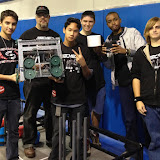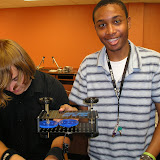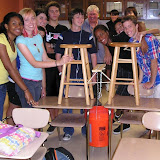 Happy New Year of the Dragon 2012!
Happy New Year of the Dragon 2012!
Captains Cindy Dosch (2010-2011), Caitlin Miller (2011-2012), and Brian Bartels (2010-2011)
 Happy New Year of the Dragon 2012!
Happy New Year of the Dragon 2012!

At this Holiday Season, a generous partnership is putting much needed dollars into the classroom. The School District has partnered with Adopt-A-Classroom, a national 501(c)(3) nonprofit organization, in efforts to increase community support and donations for local classrooms. Wells Fargo is sponsoring the campaign in challenge and matching grant dollars. Thanks to the generous donation, Wells Fargo has helped raise over $125,000 for Palm Beach County schools, providing for much needed materials and supplies in the classroom.
Adopt-A-Classroom is the nation’s only nonprofit organization that enables donors to identify and make a donation to a specific classroom. Donations are tax deductible and teachers receive 100% of funds donated. Teachers have full discretion to budget the expenditure and purchase classroom materials that meet their students’ specific needs. The best part is that donors get to see exactly what the teacher purchased.
Grassy Waters Elementary School in West Palm Beach was recently awarded one of the Wells Fargo $5,000 Challenge grants. According to Grassy Waters Principal Amy Wilkinson, “Adopt-A-Classroom and Wells Fargo have been extremely beneficial to all our teachers and students. It’s enabled the teachers to get many of the materials and supplies that they need to become better teachers and our students love the new supplies.” Lisa Park, Senior Relationship Manager, Wells Fargo At Work believes, “The Adopt-A-Classroom program has been tremendous. What a gift to see how we have been able to help the classrooms, and most importantly get the extra school supplies and all the things students need to be more successful in their day-to-day endeavors in school.”
Since 1998, Adopt-A-Classroom has raised more than $16 million on behalf of classrooms, impacting more than one million students in the United States. “Anyone can easily make a difference for a teacher and a classroom of children by using our program to make a donation,” said James Rosenberg, Founder and Executive Director of Adopt-A-Classroom. “There is no easier way to donate to a classroom in such a transparent and accountable way. We are thrilled to partner with the School District of Palm Beach County in order to bring much-needed funds into classrooms.”
“Wells Fargo invests in building strong communities, and our matching grant to Adopt-A-Classroom goes right to the source: the classrooms where our teachers teach and where our children learn,” said Frank Newman, Wells Fargo’s regional president for South Florida. “At a time when county funds are being scaled back, we need to contribute to public education and inspire others to do the same.”
To make a donation to Seminole Ridge SECME, go to http://www.tinyurl.com/AdoptSeminoleSECME and click on Donate $ button to give $2, $20, or $200. Donations can be made by credit card or check.
About The School District of Palm Beach County
The School District of Palm Beach County, Florida, is the eleventh largest in the nation and the fifth largest in the state of Florida with 187 schools, serving 174,000 students who speak 141 languages/dialects. The School District has 21,361 employees including 12,480 teachers. Over 37,000 community volunteers provide academic assistance to students through the Volunteers in Public Schools (VIPS) Program. Additionally, approximately 1,000 business partners offer resources to support increased student achievement. For more information please visit www.palmbeachschools.org .
About Adopt-A-Classroom
Adopt-A-Classroom is a national, award-winning 501(c)(3) nonprofit organization dedicated to supporting classroom teachers and ensuring all children have equal access to a quality education. Since 1998, the organization has raised over $16 million on behalf of classrooms across America. Donations are tax-deductible and 100% is passed through to the teacher. Teachers have the ability to purchase resources that create a more engaging learning environment and also provide valuable new ways to inspire children about the wonders of learning. To support a classroom, visit www.adoptaclassroom.org .
About Wells Fargo Foundation
Wells Fargo & Company (NYSE: WFC) is a nationwide, diversified, community-based financial services company with $1.3 trillion in assets. Founded in 1852 and headquartered in San Francisco, Wells Fargo provides banking, insurance, investments, mortgage, and consumer and commercial finance through more than 9,000 stores, 12,000 ATMs, the Internet (wellsfargo.com and wachovia.com), and other distribution channels across North America and internationally. We want to help all of our customers succeed financially and create long-term economic growth and quality of life for everyone in our communities. In 2010, the Company invested a record $219 million in grants in 19,000 nonprofits, and team members contributed more than 1.3 million volunteer hours around the country. For more information, please visit: www.wellsfargo.com/about/csr.

 |
| 20111204 VRC Gulliver Gateway |



 |
| 20111026 Give Blood It's Not Rocket Science |

 |
| 20111022 VEX Belen Jesuit |
 20111019 FES Jim Kunard K'NEX
20111019 FES Jim Kunard K'NEX 20111019 FES Jim Kunard and Seminole SECME KNEX
20111019 FES Jim Kunard and Seminole SECME KNEX 20111019 FES Jim Kunard vs Coach Batchelor
20111019 FES Jim Kunard vs Coach Batchelor
 |
| 20111012 WBR Backslider |
 |
| 20111005 VEX - SAE AWIM Gearbox |
 SECME: Plan It, Build It, Live It
SECME: Plan It, Build It, Live It SECME: Plan It, Built It, Live It
SECME: Plan It, Built It, Live It
It starts, obviously, with being the best student that you can be. Now, that doesn’t always mean that you have to have a perfect score on every assignment. It doesn’t mean that you’ve got to get straight As all the time -- although that’s not a bad goal to have. It means that you have to stay at it. You have to be determined and you have to persevere. It means you’ve got to work as hard as you know how to work. And it means that you’ve got to take some risks once in a while. You can’t avoid the class that you think might be hard because you’re worried about getting the best grade if that’s a subject that you think you need to prepare you for your future. You’ve got to wonder. You’ve got to question. You’ve got to explore. And every once in a while, you need to color outside of the lines.
It starts, obviously, with being the best student that you can be. Now, that doesn’t always mean that you have to have a perfect score on every assignment. It doesn’t mean that you’ve got to get straight As all the time -- although that’s not a bad goal to have. It means that you have to stay at it. You have to be determined and you have to persevere. It means you’ve got to work as hard as you know how to work. And it means that you’ve got to take some risks once in a while. You can’t avoid the class that you think might be hard because you’re worried about getting the best grade if that’s a subject that you think you need to prepare you for your future. You’ve got to wonder. You’ve got to question. You’ve got to explore. And every once in a while, you need to color outside of the lines.
That’s what school is for: discovering new passions, acquiring new skills, making use of this incredible time that you have to prepare yourself and give yourself the skills that you’re going to need to pursue the kind of careers that you want. And that’s why when you’re still a student you can explore a wide range of possibilities. One hour you can be an artist; the next, an author; the next, a scientist, or a historian, or a carpenter. This is the time where you can try out new interests and test new ideas. And the more you do, the sooner you’ll figure out what makes you come alive, what stirs you, what makes you excited -- the career that you want to pursue.
The President explained that being engaged in school is not just for the students themselves, but for the country as a whole. He acknowledged that young people today are growing up fast and students have a lot of responsibility to take on, "because you’re not just kids. You’re this country’s future. You’re young leaders. And whether we fall behind or race ahead as a nation is going to depend in large part on you."
 http://mashable.com/2011/09/07/stem-microsoft-infographic/
http://mashable.com/2011/09/07/stem-microsoft-infographic/
 |
| 20110921 Bridge Breaking |
We tested by placing the dowel halfway along the bridge so it runs across the center span. We used chain to hang the bucket off the dowel, and slowly add more and more sand to the bucket until the bridge breaks. The bucket is then weighed, and structural efficiency determined. Divide the load the bridge held by the weight of the bridge. The higher the load/weight ratio, the stronger the bridge! A good design spreads the force over a greater area, or moves the force from an area of weakness to an area of strength. Triangles are a strong shape that transfer the load from just one point to a much wider area. A bridge will buckle when the force of compression is greater than its ability to handle being shortened. A bridge will snap when the force of tension overcomes its ability to handle stretching.

 |
| 20110907 SAE AWIM JetToy Challenge |
As a science teacher and coach of my school’s engineering club, I have helped students launch plenty of model rockets. And I’ve gotten to see a few real rocket launches live from the Kennedy Space Center. Now NASA has invited me to be its guest for the liftoff of two moon-bound spacecraft aboard a Delta II rocket from Cape Canaveral Air Force Station.
 The twin Gravity Recovery and Interior Laboratory, or GRAIL, spacecraft will fly in tandem orbits around the moon for several months to provide in-depth data for scientists to analyze in order to better understand the moon's gravitational characteristics, structure, thermal evolution and history of collisions with asteroids. There are two instantaneous (one-second) launch windows open at 8:37 a.m. and 9:16 a.m. Eastern time on Thursday, Sept. 8. The launch period extends through Oct. 19.
The twin Gravity Recovery and Interior Laboratory, or GRAIL, spacecraft will fly in tandem orbits around the moon for several months to provide in-depth data for scientists to analyze in order to better understand the moon's gravitational characteristics, structure, thermal evolution and history of collisions with asteroids. There are two instantaneous (one-second) launch windows open at 8:37 a.m. and 9:16 a.m. Eastern time on Thursday, Sept. 8. The launch period extends through Oct. 19.
I’m excited that GRAIL can provide a better understanding of how Earth and other rocky worlds in our solar system formed. A moonquake isn’t an earthquake. The structure of the lunar interior, from crust to core, is different. And the thermal evolution of the moon, like how molten its mantle is, has long been a mystery. In Earth science, we can study the world’s layers by how seismic waves travel. What makes GRAIL a great mission is that it can study layers without ever landing. As one satellite passes through an area of greater gravity due to moon mass concentration, the distance between the two will shrink slightly, and these measurements will be beamed to Earth.
Also aboard the spacecraft will be a camera assembly for the benefit of students that will be used to capture images and video of the moon's surface. “MoonKAM” stands for Moon Knowledge Acquired by Middle school students. Students can request that special cameras on the satellites take photos of specific areas of the lunar surface.
2011 is one of the busiest ever in planetary exploration: GRAIL's liftoff is the third of four space missions launching this year under the management of NASA's Jet Propulsion Laboratory in Pasadena, Calif. Aquarius launched June 10 to study ocean salinity, Juno launched Aug. 5 to study the origins and interior of Jupiter, and the Mars Science Laboratory/Curiosity rover heads to the red planet no earlier than Nov. 25.
 Studies show the American public supports such ambitions. In a June 2011 survey reported by the Pew Research Center, nearly six in 10 Americans, or 58 percent, said it is essential that the United States continue to be a world leader in space exploration. Two-thirds of Republicans (67 percent) said the nation must continue to play an international leadership role in space exploration, while smaller majorities of Democrats (54 percent) and independents (57 percent) said this. Large majorities (39 percent) of the 1,500 people polled said space exploration has contributed
Studies show the American public supports such ambitions. In a June 2011 survey reported by the Pew Research Center, nearly six in 10 Americans, or 58 percent, said it is essential that the United States continue to be a world leader in space exploration. Two-thirds of Republicans (67 percent) said the nation must continue to play an international leadership role in space exploration, while smaller majorities of Democrats (54 percent) and independents (57 percent) said this. Large majorities (39 percent) of the 1,500 people polled said space exploration has contributed  greatly in encouraging interest in science, and 35 percent said it has contributed some. Nearly as many (38 percent) said the space program has contributed significantly to scientific advances that all Americans can use, while 34 percent think it has had a major impact on feelings of pride and patriotism. A vibrant space exploration program engages the public, encourages students and helps develop the high-tech workforce that will be required to address the challenges of tomorrow. GRAIL promises to play a significant role in those efforts.
greatly in encouraging interest in science, and 35 percent said it has contributed some. Nearly as many (38 percent) said the space program has contributed significantly to scientific advances that all Americans can use, while 34 percent think it has had a major impact on feelings of pride and patriotism. A vibrant space exploration program engages the public, encourages students and helps develop the high-tech workforce that will be required to address the challenges of tomorrow. GRAIL promises to play a significant role in those efforts.
GRAIL's mapping, along with high-resolution pictures of the moon's surface sent back by the Lunar Reconnaissance Orbiter, represents an important step in planning the next push outwards of human space exploration. Of particular importance will be GRAIL's discoveries about potential sites for lunar colonies at the polar regions. The aim is to map the moon's gravity field so completely that future moon vehicles can safely navigate anywhere on the moon’s surface. For more information about GRAIL, visit: http://solarsystem.nasa.gov/grail and http://moon.mit.edu/.
 |
| From 2011Autumn Hawk Talk |